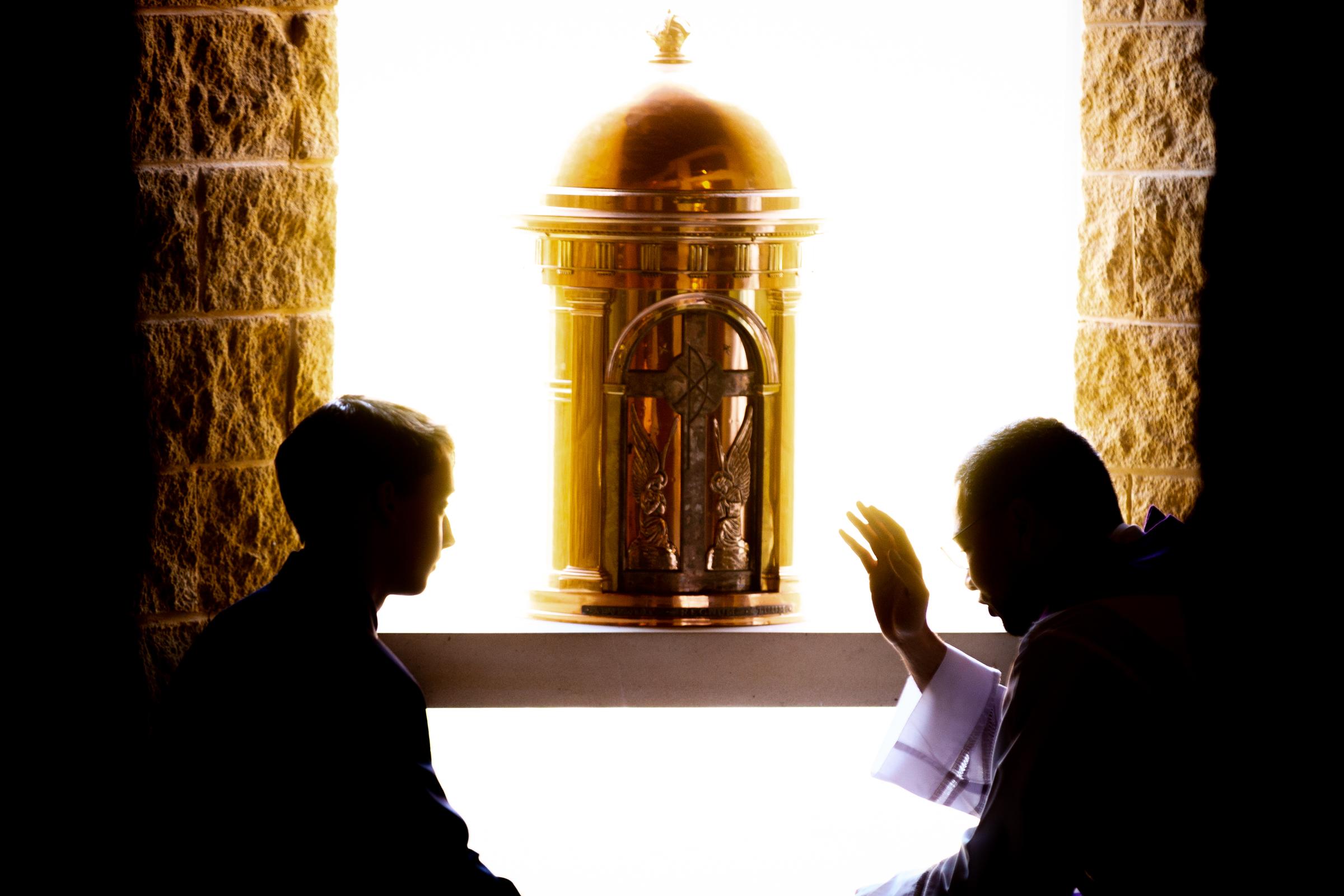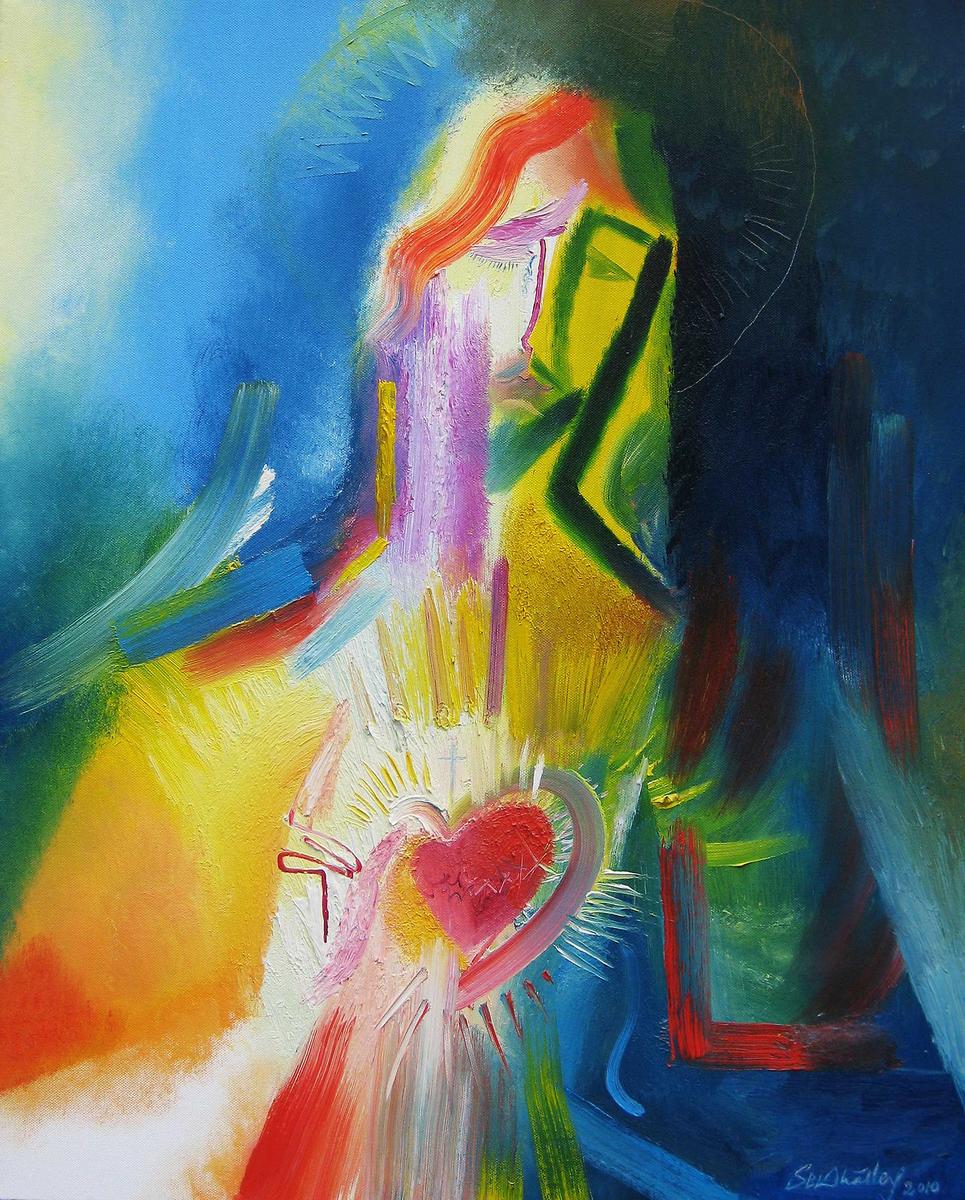Liturgy

Community Mass
Next Friday, Community Mass will be prepared by students who participate in various Magis programs at the College. Parents are always welcome to attend this joyful liturgy where students, parents, staff and friends gather as a family in Christ. After Mass finishes, around 8:30am, the celebration continues with coffee in the Circle of Friends Café.
Community Mass details
- College Chapel
- Fridays in term time
- Starts: 8:00am and concludes 8:30am
SACRAMENT PROGRAM
Updates for some of our local parishes
Saint Thomas Apostle, Claremont
Confirmation Friday 27 August
Reconciliation October
Please note that, due to current COVID restrictions on maximum capacity, priority for enrolment will go to families who are in the parish of Saint Thomas Apostle. Please see http://www.johnxxiii.edu.au/view/parent-resources/parish-sacraments
Enrolment forms are available from silvia.kinder@iona.wa.edu.au
St Mary Star of the Sea, Cottesloe/Corpus Christi, Mosman Park
Confirmation Sunday 7 November
Information Day: 5 August, 4-5pm Parish Centre
Enrolment information and contact details for the Sacrament Coordinator may be found here.
If you would like further information about the Sacrament Program:
- If your nearest parish is not listed, search the Archdiocesan website;
- Check the information available on the College website here
- Contact Mary-Anne Lumley mary-anne.lumley@cew.edu.au OR phone 9383 0408
GOOD NEWS for the feast of the Sacred Heart of Jesus
Today the Church celebrates the feast of the Sacred Heart of Jesus. According to US Jesuit, Father James Martin, reflects that the feast is;
a great opportunity to meditate on one of the most important aspects of Jesus’s life: the way that he loved … the Sacred Heart is nothing less than an image of the way that Jesus loves us: fully, lavishly, radically, completely, sacrificially.
Father Andy Hamilton, from Jesuit Social Services in Australia, leads us to insightful reflection on the heart of Christ.
The heart has always been a symbol of the miracle of life and of its fragility. The association is inescapable. If our heart stops beating, our life comes to a final halt, too. But the marvel is that it can keep beating unaided for over a hundred years. The heart, too, has been very remote: only in the lifetime of many of us has it been possible to operate on it. Because it was so central and so mysterious it was seen as the deepest and most precious part of ourselves. We still speak in that way of the heart. To go to the heart of things is to cut away distractions and to understand them deeply. To speak from the heart is to say what you most deeply believe and feel, not in a superficial or self-deceiving way.
The heart, too, has always been seen as a symbol of our feelings and attitudes. To have a hard heart is to be callous. To have a soft heart is to be sympathetic, sometimes too much so. In particular it has been seen as the home of love. We can all think of love songs, (though some of them dire), in which the heart is mentioned.
When the Scriptures speak of our heart, they usually refer to the depths of ourselves where we reveal what matters most deeply to us. That is the deep level of honesty and self-knowledge at which God wants our relationship to him to be conducted. When the Scriptures speak of God’s attitudes and feelings towards us, they cover a range of human feelings – anger, rage, love, tenderness, sadness. But God always returns to love and forgiveness. Love conquers all. Jesus especially, is identified with God’s love. In him the Son of God comes to share our messy and murderous world and dies for us out of love. Jesus shows God to be a loving Father and not a judge, executioner or absentee landlord, but one whose love is tender and conquers death and human viciousness.
We Christians constantly lose sight of God’s love and are tempted to see God instead as a hard taskmaster, an impersonal and unfeeling force, or a judge inflicting inflexible punishments. We redefine love as expectation. If our experience has been of stern and punitive figures of authority, our image of God will also be harsh. Saints constantly respond to this caricature of God by turning us back to the Jesus of the Gospel who speaks of God’s love both in his words and in what he does: healing, driving out demons, bringing joy out of grief. God is at the heart of things, and the heart of God is love.
©Andrew Hamilton


